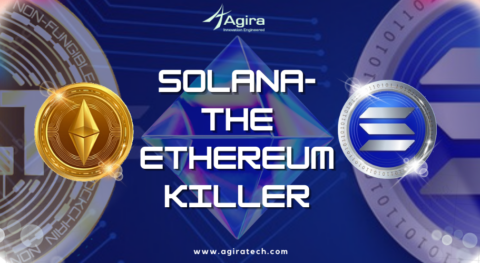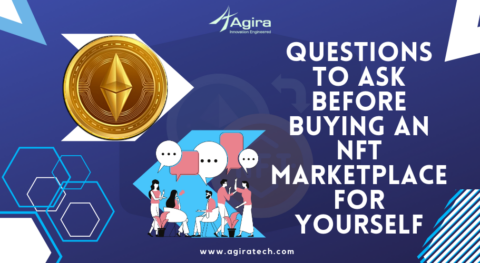Table of Contents
Smart contracts in Banking and Financial sector
A safe, trustful and secure transaction is the core of any business agreement. When a company is raising funds, signing loan agreements, trading stocks etc, transparency and consensus among the group are the key values at play and are what get us invested. This is where Smart contracts come in.
Smart Contracts are simple programs that are stored on the blockchain which are programmed to carry out an action/sequence of outcomes when the agreed terms/conditions are met. You can consider them as paperless digital contracts, only they cannot be tampered with. Smart contracts invulnerability to threats and trustless (without pre-existing trust) characteristics has made it the most sought-after option in many cases. Let’s look at a few use cases in the banking and financial sector
Digital identity
Creating/verifying the digital identity for an individual is one of the first steps a bank does when opening an account for an individual. But unfortunately, identity theft is one of the most common threats a US citizen faces and most of them go unreported. Creating a digital identification on a blockchain helps safeguard the users privacy by decentralizing the data rather than handing it over to a third-party company. This negates the interference of any middleman and revolutionizes the availing of various services like education loans, mortgages, health insurances etc, easier and affordable.
Audit
Ever imagined the auditing process being automated and made to look like a cake walk? Well it’s happening now. Smart contracts support advanced bookkeeping tools which help companies keep all records stored securely and transparent for auditing purposes.
Fund raising
The post Covid-era has given birth to many new startups and also many non-profit organizations who try to raise funds to distribute to those in need. While the traditional way of raising funds involves a lot of paperwork, time and most importantly validating the legitimacy of the recipients, smart contracts help participants validate the recipient with their digital identity and carry out transactions effortlessly. As the contract is consensus driven, tampering of the contract will automatically be negated by the code. Thus securing the integrity of the contract.
Using smart contracts one can write the code to transfer the amount to the recipient automatically once the set amount is acquired. If the goal is not met, the amount gets sent back to the contributors. Hassle-free!
Decentralized Finance (DeFi)
Unlike the current banking system which is centralized i.e. the bank controls the money flow, DeFi is decentralized i.e. no one is in control of the money. But wait, isn’t that unreliable? No, this is because it runs on code which is immutable. The bank’s interest rates and waiting time make transactions expensive and less attractive.
DeFi are highly complex smart contracts that execute automatically and give way for new financial instruments and digital assets, like cryptocurrencies. Another major advantage of DeFi is its interoperability. Ethereum is a blockchain on which DeFi applications can be built to integrate with other existing protocols. This is why DeFi protocols are also called “money legos”. The openness and permissionless character of DeFi enables anyone with the cryptowallet and internet to access their personal data and assets securely.
Loans and Mortgages
The immutable, consensus driven, decentralized and transparent characteristic of smart contact, enable all individuals a shot at building their credit score and have a digital presence. Maintaining a digital identity helps the individual build his/her credit score which in turn helps him avail numerous bank services such as acquiring a loan and mortgages. Depending on the individual’s history, if the required conditions and criterias are met, the bank approves the loan and the amount is disbursed. Smart contracts can help banks follow on mortgage payments and release the property when the loan is paid off.
Smart contracts can undoubtedly unlock valuable insights and opportunities for banks and financial sectors to build long-lasting customer relationships by providing satisfactory services.
If you’d like to learn more about smart contracts and the plethora of benefits it brings to your business, please reach out to our Agiratech strategist and we will help you reach your goal.










